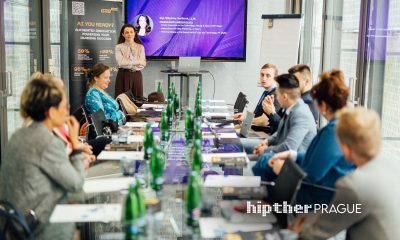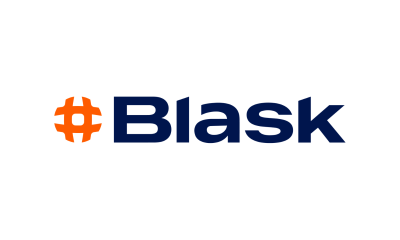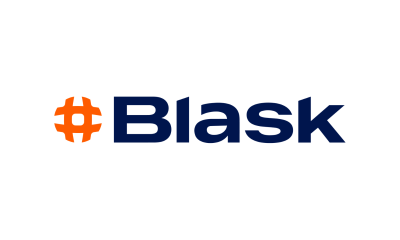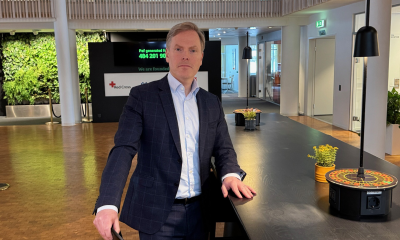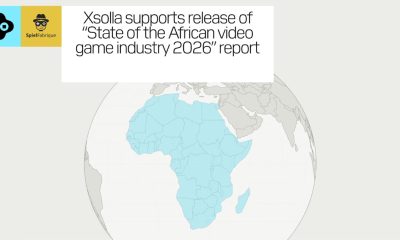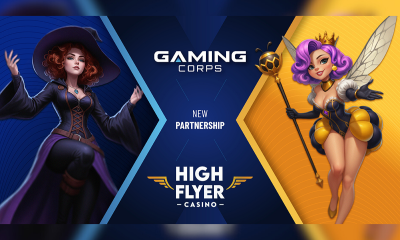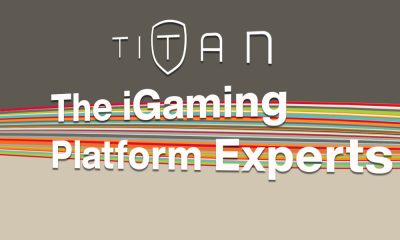Conferences in Europe
Prague Gaming Summit 2020 speaker profile: Tatiana Davydova (Chief HR Officer at Parimatch)
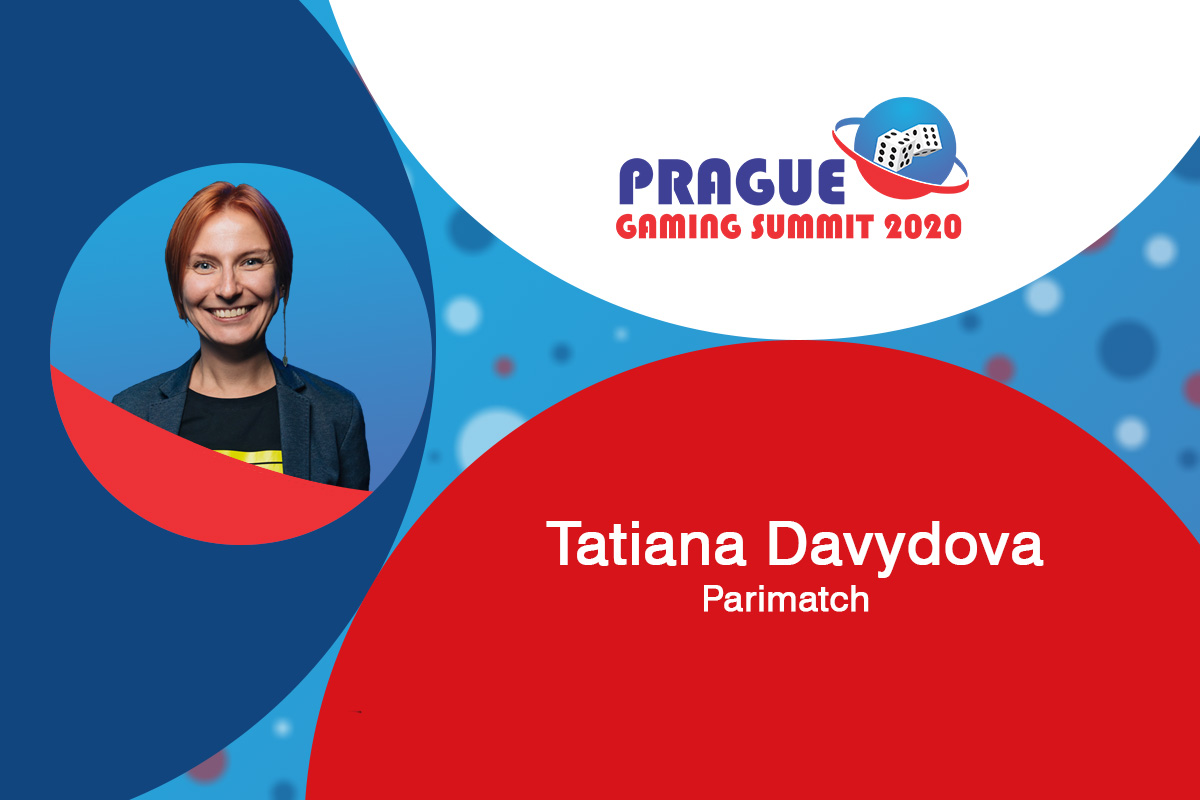
The 4th edition of the Prague Gaming Summit will take place on 6 March 2020 and welcomes leading operators, service providers and gambling industry experts from all across Europe.
On the 6th of March at the Prague Gaming Summit, you have the opportunity to dive into several subjects, among which also the “Diversity In The Gambling Industry, HR Topic Or Reality”
As mentioned in earlier press releases, Prague Gaming Summit 2020 will bring a brand new format of speeches and more trending themes as it did in the early years.
Among the leading experts that will share their latest information, you have the opportunity to hear more about the status of diversity in the gambling industry from Tatiana Davydova – Parimatch, alongside Ana-Maria Baciu – Simion & Baciu Law Firm and moderator Dr. Simon Planzer – PLANZER LAW
Tatiana Davydova joined Parimatch as Chief HR Officer in 2019. Tatiana is responsible for hiring, employee engagement, and development, promotions, HR policies, and procedures.
During her first six months with Parimatch, Tatiana restructured the HR department into distinct units including the center of expertise, the HRBP function and the center of innovation, which focuses on optimization and automation.
Tatiana has been responsible for the launch of an employee handbook, aligning all policies and procedures, launching the corporate website, automating recruitment, introducing a bonus policy and a centralized HR Information System.
Tatiana has also reviewed and updated policies for onboarding, employee surveys, annual leave, and performance evaluation.
Prior to Parimatch, Tatiana worked for 15 years as an HR officer in an IT company. In her previous role, Tatiana was Head of Global HR in one of the largest international software development companies for gambling – Playtech. She was responsible for approximately 6,500 employees, following the takeover of Snaitech in 2018.
Tatiana has a Master’s degree in Rocket Science, specializing in Power Plants for Spacecraft. She loves paragliding but unfortunately has had little time to devote to this over the past five years. Her current projects including building a motorboat and a summer house.
Do not miss this unique opportunity to learn and networking with the leaders of the industry.
Order your Delegate Pass or VIP Package (Delegate Pass +Accommodation) now!
Here is a testimonial that has been left by Tal Zamstein, one of the attending delegates of the 2019 edition of Prague Gaming Summit:
“It was great to have the operators and suppliers with the presence in the CEE territories under one roof. It is always very useful to discover the challenges and see the trends of the industry in the newly regulated markets.”
Tal Zamstein
Group Head of Gaming at Fortuna Group
Conferences in Europe
HIPTHER’s European Gaming Congress 2025 Marks Record Attendance and Announces Marek Plota as Ambassador of the HIPTHER Warsaw Summit

Reading Time: 3 minutes
The 2025 edition of the European Gaming Congress (EGC) closed its doors in Warsaw with record-breaking attendance, a strengthened industry footprint, and an announcement that marks a new chapter for HIPTHER’s European expansion: in 2026, EGC officially evolves into the HIPTHER Warsaw Summit with renowned legal expert Marek Plota appointed as its first Ambassador.
Held across two content-rich stages – the Compliance & Operations Lad and the TechXperience Stage – alongside the hands-on HIPTHER Academy Workshops, EGC 2025 delivered its most ambitious program to date. Attendance has now tripled compared to its reintroduction in 2023, establishing Warsaw as one of the most dynamic conversation hubs for gaming, compliance, and tech in Europe.
A European Outlook With Global Relevance
The Compliance & Operations Lab brought together regulators, lawyers, and industry specialists for a panoramic review of the evolving European ecosystem. Discussions spanned the Polish market’s legal framework, cross-border compliance from Paris to Berlin, key CEE territories, the Czech Republic and Romania, and an outlook on emerging priorities in the Baltics. Experts also explored global trends with a timely update on several LATAM jurisdictions.
A highlight of the Agenda was the IMGL Masterclass – “Regulators, Legislators, and the Power of One Voice: A Legal Strategy for Industry Unity” – which explored the future of collaborative governance and harmonization.
Fintech, taxation, licensing, and responsible gaming standards added essential layers to a program designed to help operators and suppliers navigate an increasingly interconnected regulatory landscape.
Tech, Innovation, and the Human Factor
On the TechXperience Stage, conversations shifted to the future:
– AI for competitive advantage
– The evolution of esports and startup innovation
– AEO & SEO trends redefining discoverability
– Personalization and the new player journey
– Cyber resilience in iGaming
– Strategic Event Preparation in B2B PR, Marketing & BizDev
These sessions brought together marketing leaders, technologists, founders, and innovators across iGaming, fintech, digital entertainment, and cybersecurity, underlining Warsaw’s emerging status as a cross-industry meeting point in Europe.
A Key Voice: Marek Plota’s Impactful Participation
Throughout the Congress, Marek Plota – Founding Attorney at RM Legal & Gaming in Poland – played a leading role as both moderator and speaker. His contributions spanned Poland’s gambling framework, European lessons for CEE markets, and strategic taxation and licensing standards. He also brought legal depth to the IMGL Masterclass, adding critical clarity to one of the most pressing topics for operators in the region.
Marek’s widely respected presence across national and international gaming markets, combined with his years-long collaboration with HIPTHER as panelist, moderator, sponsor, and advisor, made this year’s Congress a natural moment to formalize the partnership.
Introducing the Ambassador of the HIPTHER Warsaw Summit
HIPTHER is proud to announce Marek Plota as the Ambassador of the HIPTHER Warsaw Summit, beginning with the 2026 edition.
In his own words: “It’s a real honor to serve as an ambassador for the Hipther Warsaw Summit and the European Gaming Congress. My collaboration with Zoltan Tundik and the Hipther team goes back many years as a panelist, moderator, sponsor, and above all, as a friend. These events are truly unique in the global gaming and gambling conference calendar — intimate, insightful, and refreshingly personal. Unlike the vast expos, Hipther events give people a genuine chance to meet, talk, and exchange ideas without walking 50,000 steps from one meeting to another. We are already looking forward to the next editions and to working together to make these conferences a true must-have for everyone in the industry.”
Marek is a founder and a head of the legal team at RM Legal Law Firm and Gaming In Poland, jointly providing multidisciplinary and multijurisdictional support for leading international gambling operators in the Polish, European Union, and African markets. His gambling practice includes regulatory support at the pre and post-licensing stage, IT, and taxation services, as well as the unique service of performing a function of a gambling representative. RM Legal is the only law firm in Poland representing offshore companies operating legally in the Polish gambling market. Apart from gambling Marek specializes in corporate commercial law and international investment projects.
A New Era for Warsaw, Europe, and the Global Market
The transition from EGC to the HIPTHER Warsaw Summit marks a strategic evolution with HIPTHER enhancing the region’s growing importance: Poland now stands as a crossroads of regulatory influence, iGaming innovation, and international market expansion – connecting Western Europe, CEE, and fast-emerging global markets, from Africa to LATAM.
In 2026, the HIPTHER Warsaw Summit will continue shaping the conversations and connections that define the future of gaming and tech.
HIPTHER looks forward to welcoming the industry back to Warsaw next year for an even bigger, more influential, and more globally connected event – assisted by the expertise and vision of its new Ambassador.
The post HIPTHER’s European Gaming Congress 2025 Marks Record Attendance and Announces Marek Plota as Ambassador of the HIPTHER Warsaw Summit appeared first on European Gaming Industry News.
ADMIRAL Pay
NOVOMATIC Italia Showcases Innovation and Responsible Growth at SiGMA 2025

Reading Time: 3 minutes
NOVOMATIC Italia played a key role at SiGMA Central Europe 2025, one of the leading international events for the gaming and digital technology industry, which was held in Rome from November 4 to 6. The Group showcased ADMIRAL Pay, the payment institution authorised by the Bank of Italy, and Quigioco, its online gaming brand, presenting an integrated and sustainable vision for the future of payments and digital entertainment.
The synergy between the Quigioco gaming platform and ADMIRAL Pay was at the heart of NOVOMATIC Italia’s presence at SiGMA Central Europe 2025 was. This integrated solution offers legal gaming operators a concrete response to the ongoing transformation of the market, particularly in terms of regulatory compliance.
The combined structure of Quigioco and ADMIRAL Pay ensures fully compliant financial flow management by providing operators with technologically advanced tools that are aligned with the latest Italian legislative requirements. This infrastructure represents an integrated payment system and a complete digital ecosystem that is designed to support operators in an increasingly regulated and competitive market. The model is complemented by B2C solutions, including APay E-Wallet and APay Card, which interface seamlessly with the B2B architecture to expand additional growth opportunities.
Driving the market with technology and security
The collaboration between ADMIRAL Pay and Quigioco marks a key milestone for the Italian market: by adopting integrated digital payment systems, online gaming platforms can now deliver increasingly personalized and secure experiences to their users.
ADMIRAL Pay technology enables rapid conversion between cash and digital currency, ensuring instant and secure transactions that meet the highest international standards. For PVRs (Punti Vendita Ricarica: venues authorised to sell recharges for online gaming) and operators, this means access to an advanced payment tool that simplifies operations and guarantees efficiency, even during peak periods.
Meeting new regulatory and market demands
The digital payments and gaming sector in Italy is now subject to increasingly stringent regulatory standards that are designed to ensure maximum security, traceability and transparency. The integration of Quigioco and ADMIRAL Pay fully meets these requirements, offering a unique solution that strengthens compliance while enhancing the customer experience. By managing financial flows in a compliant manner, operators can reduce risks and provide players with immediate and secure access to their funds. This model translates into trust and long-term loyalty, creating value across the entire supply chain.
Responsibility and leadership: the pillars of the future
SiGMA Central Europe 2025 was also an opportunity to highlight NOVOMATIC’s commitment to promoting responsible gaming and continuous product innovation. The target is to maintain industry leadership by investing in technologies that not only enhance the user experience but also ensure maximum player protection and operator transparency.
“Our goal is to extend the success and expertise that have always defined NOVOMATIC Italia in the land-based sector into the digital world. We want to offer operators and players an integrated ecosystem that combines technology, security, and innovation, reaffirming our Group’s leadership in online gaming,” said Markus Buechele, CEO of NOVOMATIC Italia.
This strategic vision was recognized when NOVOMATIC Italia received the “B2B Industry Leader Italy 2025” award at the SiGMA B2B Awards, in honour of the company’s excellence and ongoing commitment to an innovative, responsible and sustainable approach to development. The Group is not only addressing evolving market and regulatory challenges but also paving the way for a future in which innovation and sustainability move forward together.
Through ADMIRAL Pay, Quigioco and the major innovations showcased at SiGMA, NOVOMATIC Italia demonstrates how the convergence of digital payments and online gaming can drive growth, security, and long-term sustainability across the industry. By being built on innovation, responsibility and strategic vision, this model is positioning the company at the forefront of a tech-driven and sustainable future.
The post NOVOMATIC Italia Showcases Innovation and Responsible Growth at SiGMA 2025 appeared first on European Gaming Industry News.
2026 iGaming Trends Report
Presenting Industry Trends and Celebrating 100 Brands: SOFTSWISS Shines at SiGMA Central Europe

Reading Time: 2 minutes
SOFTSWISS, a global tech leader in iGaming solutions, has wrapped up a remarkable showcase at SiGMA Central Europe 2025. From the launch of the 2026 iGaming Trends Report to the live-built Alfa Romeo 4C handover, the company once again demonstrated why it stands as the industry’s leading technology provider and creative pioneer.
One of the main highlights of the event was the official release of the 2026 iGaming Trends Report. The fourth edition offers a data-driven overview of the macro- and microtrends shaping the future of iGaming – from the industrialisation of AI to regulatory shifts, cybersecurity evolution, and the rise of brand trust.
To mark the launch, SOFTSWISS hosted the 2026 iGaming Trends Marathon, a four-hour live event featuring global thought leaders. In the opening panel discussion, Ivan Montik, Founder of SOFTSWISS, Heathcliff Farrugia, COO of SiGMA, and Pierre Lindh, CEO of NEXT.io, arranged the ‘Ultimate Forecast Duel,’ exploring which trends will define the industry’s next chapter.
Another key moment was the Alfa Romeo 4C gifting, organised to celebrate the launch of the 100th brand powered by SOFTSWISS software in 2025. The sports car, assembled live during the expo at the SOFTSWISS stand, became a symbol of the company’s engineering precision and team spirit.
During a special ceremony, Ivan Montik handed over the keys to one of SOFTSWISS’ valued partners, Lottu, represented by Hugo Baungartner, Chief Business Officer, marking another milestone in a long-standing partnership based on trust and shared success.
About SOFTSWISS
SOFTSWISS is an international technology company with over 15 years of experience in developing innovative solutions for the iGaming industry. SOFTSWISS provides comprehensive software for managing iGaming projects. The company’s product portfolio includes the Casino Platform, the Game Aggregator with over 36,700 casino games, Affilka Affiliate Platform, the Sportsbook Software and the Jackpot Aggregator. The expert team, based in Malta, Poland, and Georgia, counts over 2,000 employees.
The post Presenting Industry Trends and Celebrating 100 Brands: SOFTSWISS Shines at SiGMA Central Europe appeared first on European Gaming Industry News.
-

 Africa7 days ago
Africa7 days agoState of the African Video Game Industry 2026: Xsolla Backs SpielFabrique’s Definitive Market Report
-

 Edvardas Sadovskis CPO at ICONIC217 days ago
Edvardas Sadovskis CPO at ICONIC217 days agoICONIC21 Reimagines Myth: Medusa vs. Perseus — The Stone Duel
-

 Canada6 days ago
Canada6 days agoGaming Corps takes flight in Ontario with High Flyer Casino partnership
-

 CRM6 days ago
CRM6 days agoTitan 3.0 Launch Marks Finnplay’s Biggest Platform Overhaul
-

 Christer Fahlstedt6 days ago
Christer Fahlstedt6 days agoPaf has halved its loss limit since 2018
-

 Africa6 days ago
Africa6 days agoAmusnet Announces Strategic Partnership with Betway
-

 Canada6 days ago
Canada6 days agoCasinoCanada and GG.BET Forge Strategic Alliance
-

 Latest News5 days ago
Latest News5 days agoWinSpirit’s UnValentine’s Day: A New Take on February Engagement





